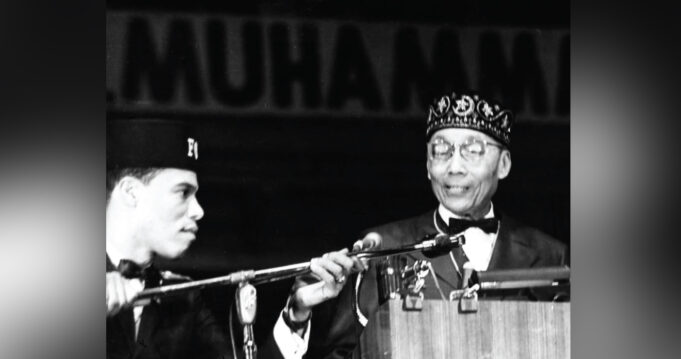The true impact of the Honorable Elijah Muhammad on America and the world is the most remarkable story yet to be fully told. The eternal leader of the Nation of Islam has had a profound influence on the thinking of millions of Black people and others worldwide.
He didn’t protest for civil rights though he profoundly impacted the movement. His Nation of Islam influenced and inspired militancy seen in the Black Power movement and the Black Arts movement. He also redefined Black concepts of God and divinity, rejecting the blonde-haired, blued-eyed images of Jesus and using scripture, history and other disciplines to prove the Caucasian people were a race of devils.
With the Nation of Islam now over 90 years old and still a potent, current force in Black life and international affairs, his program remains critical for Black survival and shows the way to success.
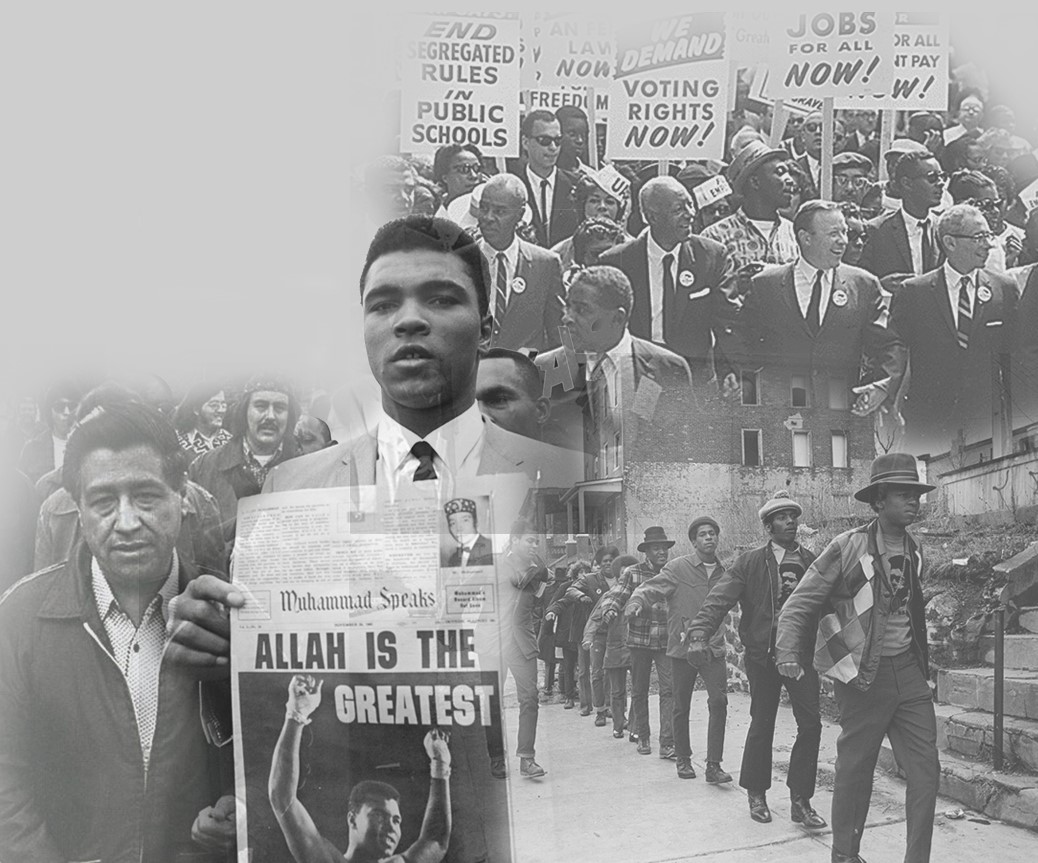
Through the restoration of his name, spreading of his mission, exposition of his wisdom and reaching millions across the globe since rebuilding the Nation in the late 1970s, his number one student, the Honorable Minister Louis Farrakhan, has taken the teachings of the Hon. Elijah Muhammad to every nook and cranny of the planet. Min. Farrakhan’s unflinching work for his Teacher and engendered honor and respect should spark a reassessment of this man born 45 years after the Emancipation Proclamation—and of his program and position.
And the work of the Nation continues, officially across several continents and unofficially wherever Believers arise upon hearing Messenger Muhammad’s Supreme Wisdom.
From the everyday people who are the focus of his work of reform and resurrection to scholars examining the Teachings, the impact is undeniable. So much so that the enemies of Black progress have attacked Min. Farrakhan unceasingly everywhere. That includes social media assaults—denying him platforms, targeting his work and ministry—as he brought his Teacher to new generations of Black people.
“No other organization has been so influential yet so provocative in its relatively young history. From its beginnings as a small Detroit-based sect to its current global position, the Nation of Islam continues to be both a champion of hope and a beacon of controversy among opponents and followers alike,” wrote England-based scholar Dr. Dawn-Marie Gibson from the University of London.
The Honorable Elijah Muhammad taught that through accepting Islam and relying on Allah (God) and unity, complete separation from Whites, community building, and knowledge of self, a blueprint could be had for the ultimate freedom, justice, and equality for Black people.
His extraordinary ideas challenged Western religious theology and traditional Islamic orthodoxy. His thinking created within Black men and women a deep-rooted appreciation for the religion of Islam and a more profound sense of self and purpose.
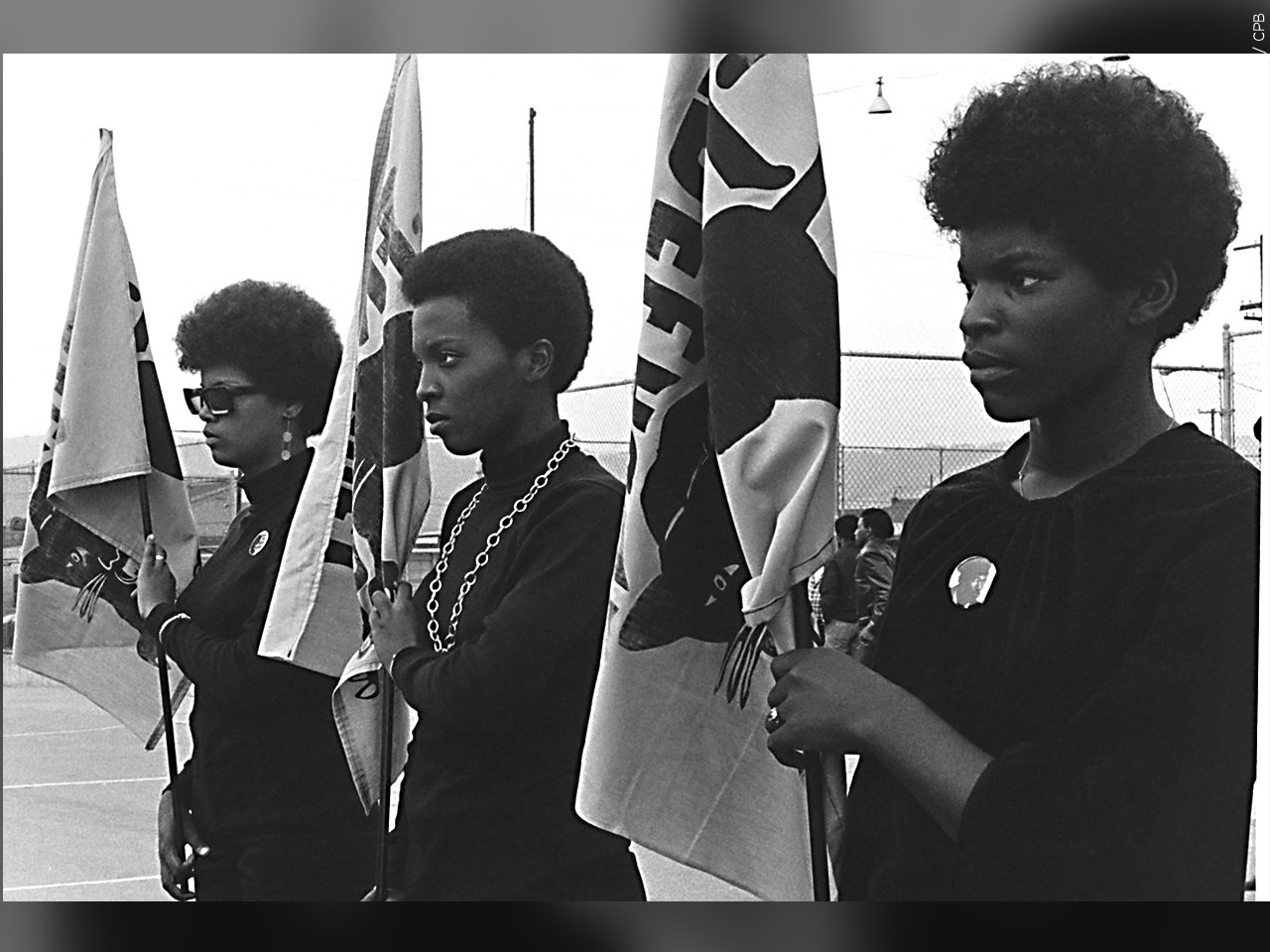
Edward E. Curtis explored this new way of thinking in “Science and Technology in Elijah Muhammad’s Nation of Islam: Astrophysical Disaster, Genetic Engineering, UFOs, White Apocalypse, and Black Resurrection.” He wrote, “The Nation of Islam emphasized scientific, material, and empirical over spiritual and supernatural understandings of religion.
To live according to the scientific and mathematical principles derived from their prophet’s cosmological, ontological, and eschatological teachings on the nature of God, the origins and destiny of the Black race, and the beginning and end of white supremacy. Herein lies the key. The formula used by Messenger Muhammad simply put was Islam is mathematics, and mathematics is Islam.”
Using this formula, the Honorable Elijah Muhammad accomplished the impossible, impacting Black America in all spheres of critical thinking from the importance of independent education, to the value of women, business entrepreneurship, arts and culture and theology, spiritual development, unity worldwide, prison rehabilitation, diet, Black independence, and self-reliance.
Through his reasoning and teachings, the impossible disappears.
A mission, model worthy of study
Dr. Abul Pitre, author of the book “The Educational Philosophy of Elijah Muhammad: Education for a New World,” talked to The Final Call on the importance of Mr. Muhammad in the field of education. “Elijah Muhammad’s educational ideas included a critical pedagogy based on multicultural education and critical white studies. He pioneered critical race theory before it had a name. He reached across disciplines to explore the relationship among races, the justice system, and society,” Dr. Pitre, a university professor in California, said.
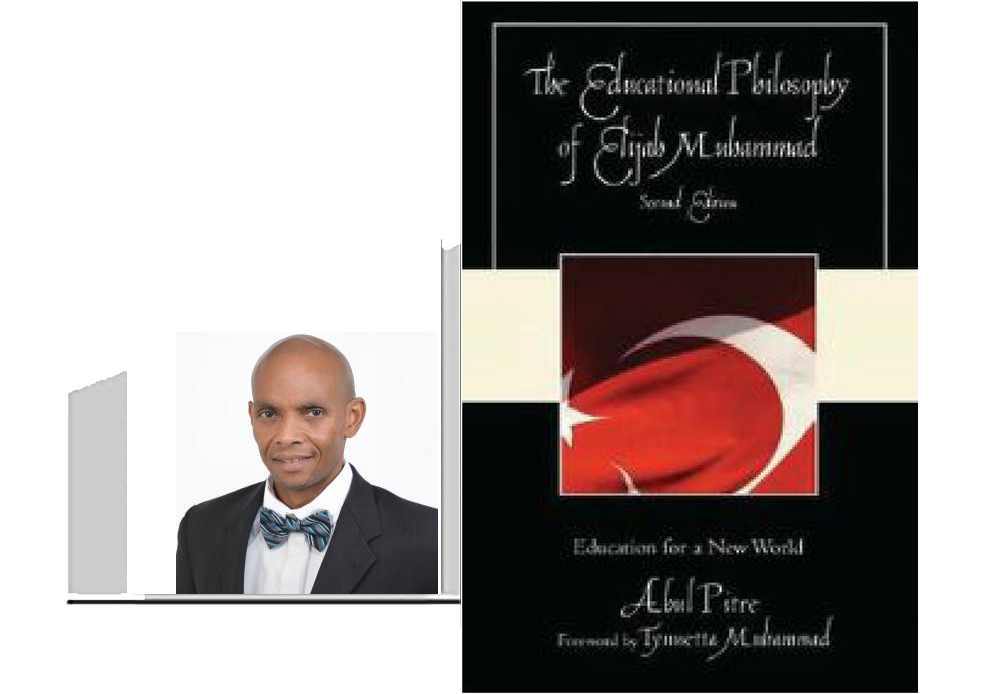
Dr. Pitre shared several critical components of Elijah Muhammad’s educational philosophy, such as the knowledge of self, the purpose of education, education for a new world, and the role of teachers. “These facets of Elijah Muhammad’s philosophy can be used as the basis for the development of a new educational paradigm that is universal in scope,” he said.
“The educational philosophy of Mr. Muhammad creates a new paradigm that can transform individuals, schools, societies, and the world. His major premise is that education should cultivate the divine essence in human beings, helping them find their purpose in life.”
Dr. Pitre added, “Elijah Muhammad’s extraordinary wisdom and teaching methodology has been able to educe the potential in his students who will bring about a new people. Elijah Muhammad provides a knowledge base for one to examine the self more critically in relation to others. In his mission statement, the foundation for true education is being presented. To lead one from ignorance into knowledge is to lead one from death into life. In finding life, one can find the essence of love.”
The impact of the teaching of the Honorable Elijah Muhammad can also be found in the important Black Power Movement and its companion, the Black Arts Movement of the 1960s.
“In Black Aesthetic theory, the literature regarding the development of Black consciousness takes into consideration the role of the Nation of Islam (NOI) in raising racial awareness among African Americans,” wrote Dr. Ammar Abduh Aqeeli, currently at Jazan University in Saudi Arabia, in his 2018 doctoral dissertation for Kent State University.
“For instance, in ‘New Space/The Growth of Black Consciousness in the Sixties,’ Larry Neal asserts that the rise of the Nation was a significant force in promoting black consciousness among black Americans.
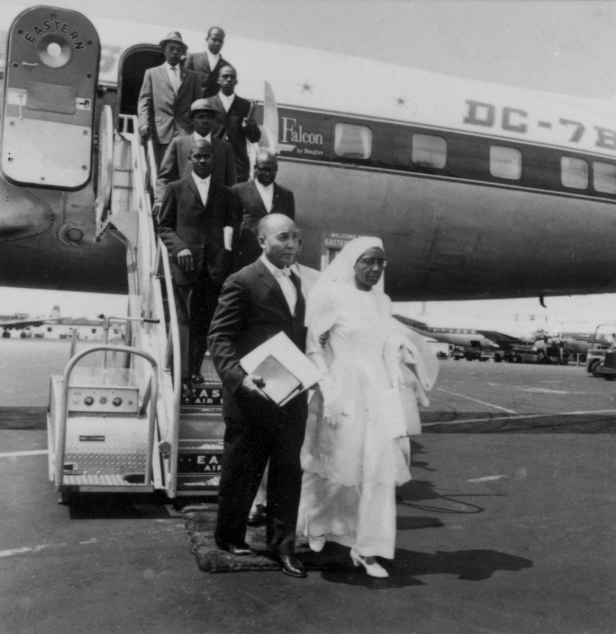
He states: ‘Through Malcolm, the Nation of Islam affected a broader and open discussion of identity—a subject that has always been a part of our ideological continuum.’ The discussion aimed at securing a separate identity from American national identity and aspiring for a separate black nation inside America.”
“The Nation of Islam’s program of Black consciousness played an essential role in shaping the vocal and resistive politics of the 1960s inside the Black community. African American literature of the period was informed by the Nation’s call for Black national identity and consciousness.
Younger black artists and writers were inspired to quest for a Black Aesthetic that would liberate them from the mainstream aesthetics and become a tool to stop white control over every aspect of black people’s lives. In the 1960s, the radical teachings of the Nation of Islam inspired African Americans to form the Black Power movement and its artistic sister, the BAM.”
Dr. Aqeeli further pointed out, “Interestingly, the influence of the Nation of Islam and Mr. Muhammad’s teachings on many aspects of African American lives and scholarly fields, particularly African American literature, has been underemphasized and, to some extent, overlooked. The Nation of Islam, despite its paradoxes and controversies, was one of the strongest movements that had a positive and prolonged influence on the African American community.”
“The teachings of Mr. Muhammad raised awareness among black people on how important it was for them to realize the value of their race and themselves if they wanted respect and prosperity. His teachings equated blackness with power and emphasized the importance of black people and their glorious history.
Moreover, Mr. Muhammad’s organization could uplift the black masses through its various programs that promoted economic self-reliance, moral living, and cultural consciousness. As a result, most subsequent African American movements, including the Black Arts Movement, which advocated black consciousness, were branches of the legacy of Mr. Muhammad.”
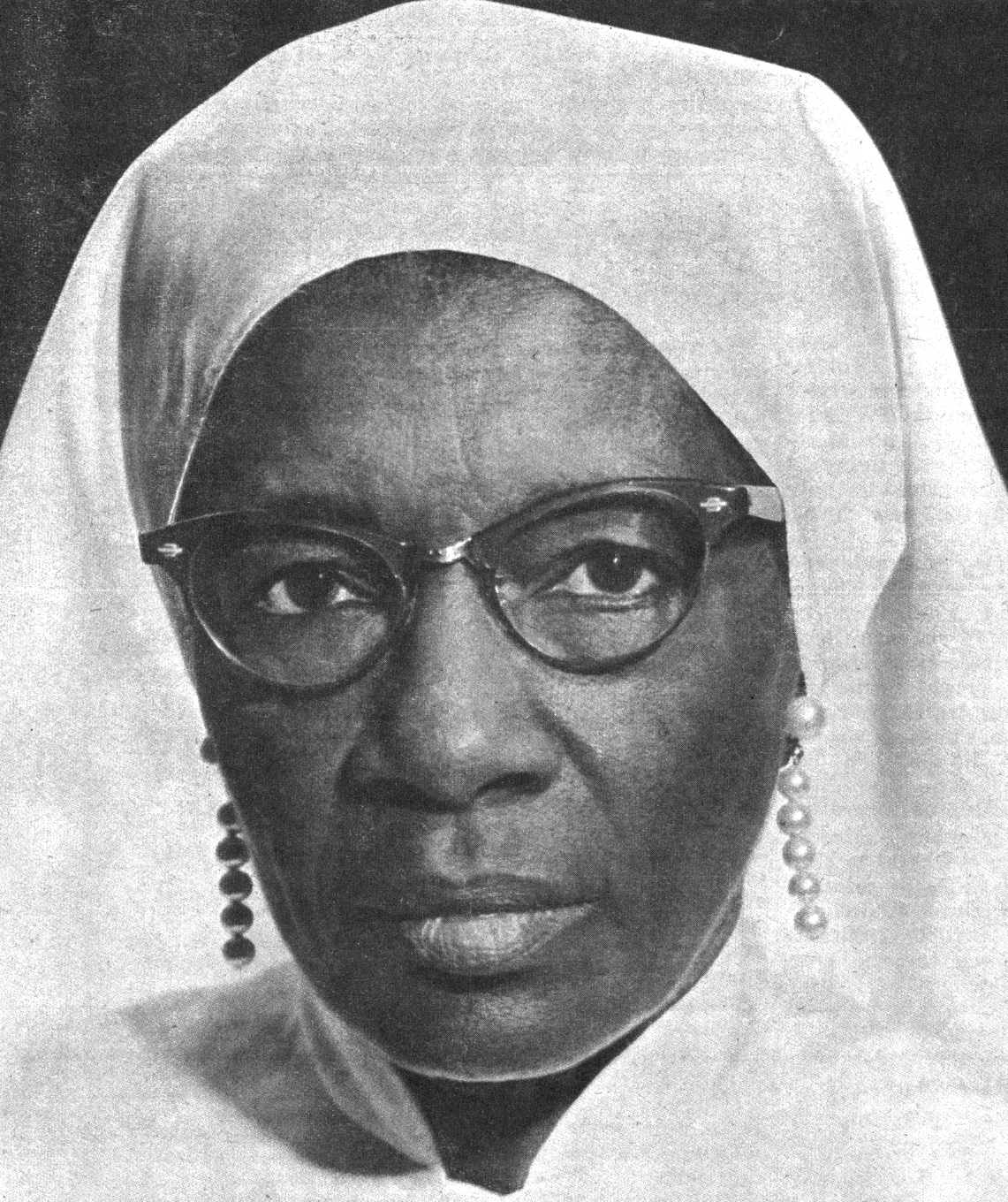
“No other historical personality has had the kind of prolonged impact on black consciousness that he has had, and no recent group in the African-American community has promoted—largely by example—economic self-help, cultural regeneration (or redefinition), and moral living more vigorously than his Nation of Islam. The Muslims were ‘black’ long before it became fashionable to be labeled as such.
The Black Power Movement and all subsequent African-American protest styles, from the rhymes of the nationalistic rap group Public Enemy to the raison d’être of the Million Man March, are undeniably offshoots of the legacy of Elijah Muhammad,” argued Herbert Berg in his book, “Elijah Muhammad and Islam.”
Perhaps a better question is who is this man Elijah Muhammad and how could he have accomplished all that he did and influenced so many as an inarticulate sharecropper from rural Georgia with a third-grade education?
Nzinga Muhammad, a student at Bennett College, took on the subject in a published article, “The Impact of the Honorable Elijah Muhammad.” She reflects on his religious thought process and the role of women. “The Honorable Elijah Muhammad opposed commonly believed aspects of religions, both in Islam and Christianity.
He set the argument, scientifically and mathematically, that Heaven and Hell are conditions of life on earth rather than actual places people go after death. He denounced ‘spooky’ and ‘mysterious’ concepts of religion, even when it came to God Himself,” she observed.
“He also challenged the view of women in religion. He rejected the idea that women came from ‘man’s rib’ but instead taught that God created the woman as He created man, from the same essence, as the Holy Qur’an says. He went further to say that women are the Second-Self of God and His Twin. The Honorable Elijah Muhammad stressed the importance of women in their connection to the Divine.
He disrupted notions that women were unfit to preach the Word by letting women become ministers, while many Churches and even some mosques refused to let women speak or have those kinds of positions. He caused a shift in challenging Christian theology that encouraged more Black people to rethink religious doctrine for themselves,” Nzinga Muhammad wrote.
Diet, do for self and divine existence
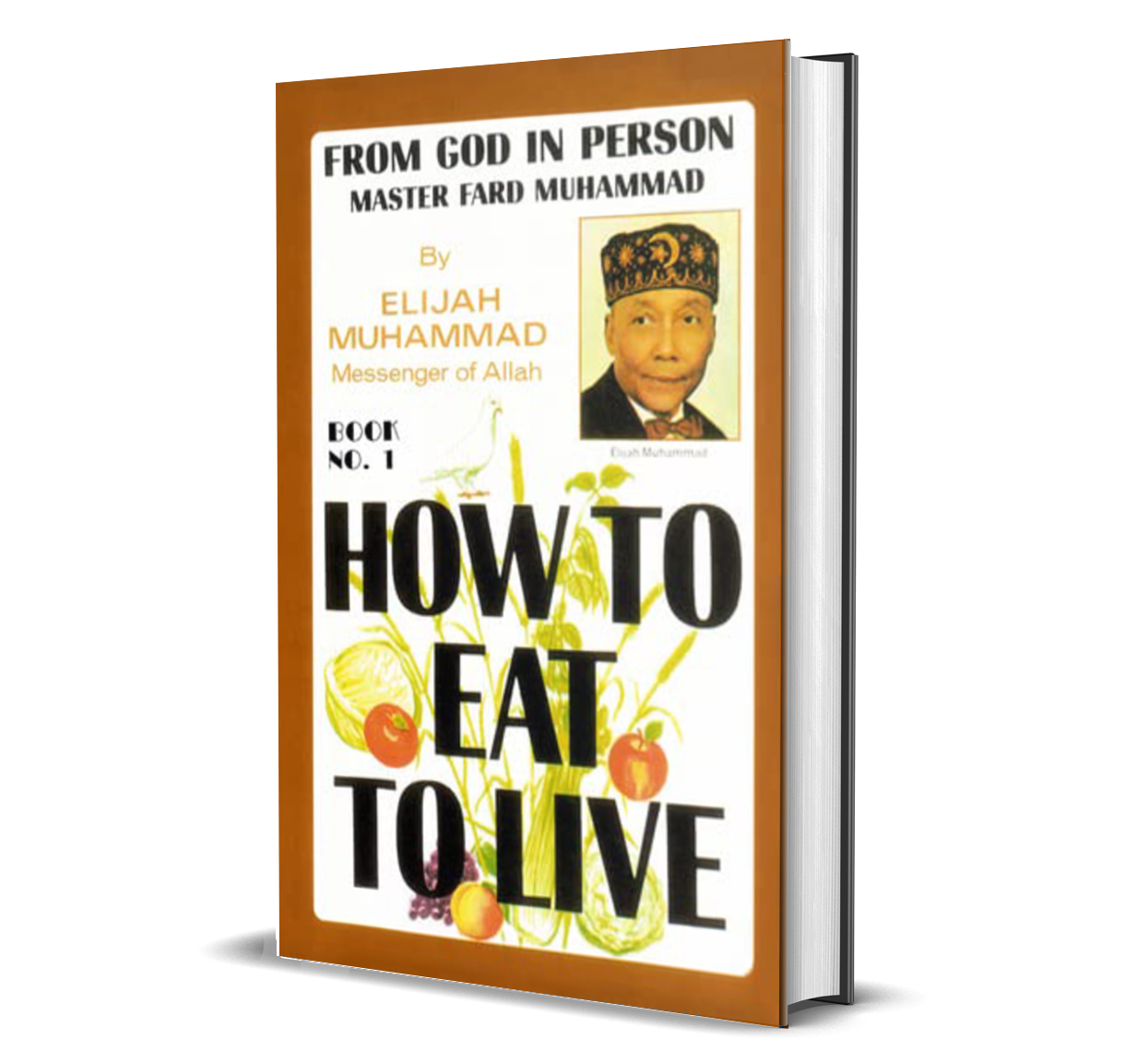
In his Haverford College thesis “Exploring How Diet and Nutrition Redefine Notions of Black Identity, Health, and Gender in the Nation of Islam,” Jonathan Alexander Pellets succinctly connected the diet espoused by the Honorable Elijah Muhammad with his total program for Black advancement. He theorized, “The Nation of Islam’s diet is practiced as a method of combating notions of Black oppression.
The Nation’s leader, Prophet Elijah Muhammad, heavily frowned upon the soul food diet, understanding it to be harmful to the sacred Black body and an illegitimate source of racial pride. For Black Muslims, diet is very much related to the understanding that Black people are made in the likeness of Allah.”
“Because of this, addressing the issues of racial and gendered subordination involves adopting a sacred dietary practice that aids in their formation of a communal identity separate from Black Christianity, White America, the Black Consciousness Movement, and Orthodox Islam.
Muhammad attracted followers by promising that adherence to the Nation’s diet would ensure health and longevity. Additionally, it would foster growth in Black society by strengthening one’s identity as a Black Muslim and relation to God. The Nation of Islam’s diet is practiced as a method of combating notions of Black oppression.”
Dr. Nafessa Muhammad is an assistant professor in the Department of History, Political Science, and Philosophy at Lincoln University in Pennsylvania. She has researched the work of the Honorable Elijah Muhammad her entire career. She was born into the Nation and is an active member.
“His greatest legacy to me is teaching Black people in America how to do for ourselves and how to accept themselves. So, knowledge of self, combined with self-sufficiency, equals freedom for Black people in America, and that’s his greatest legacy and bringing people to Islam, of course,” she said.
“The Honorable Elijah Muhammad inspired the unlearned and taught them how to create jobs for themselves. You could join the Nation of Islam, and you could learn how to do business, how to socialize with people, and really just mature.”
Dr. Muhammad published a paper, “The Nation of Islam’s Economic Program, 1934-1975,” detailing its tremendous business accomplishments.
In providing an overview, she stated the Muslim business successes were overwhelming. “By 1975, the Nation of Islam operated hundreds of businesses throughout the United States which collectively employed over 11,000 people. The estimated annual revenue from these businesses was approximately $30 million per year.
At the time of the Honorable Elijah Muhammad’s departure on February 25, 1975, the net worth of the NOI totaled $80 million. That wealth was used to enhance the economic security of its members and to support the expansion of the NOI’s religious mission and the establishment of over 75 temples across the United States in 1975,” she told The Final Call.

Dr. Nafessa Muhammad also pointed out the importance of Muhammad Speaks, the Nation’s legendary newspaper. “In 1968, the NOI purchased a four-story, sixty-thousand-square-foot building in Chicago’s South Side for $1 million. The building was used to accommodate the Muhammad Speaks newspaper operations,” she said.
One of Muhammad Speaks most distinctive attributes was the juxtaposition of religious and secular content. The cover often depicted the image of Elijah Muhammad, the spiritual leader of the Nation of Islam, and its pages invariably featured religious content, including a centerfold dedicated to the speeches and teachings of Muhammad.
Alongside these messages was coverage and commentary on domestic and international events by secular journalists and writers unaffiliated with the Nation of Islam, JSTOR Daily observed. At its peak, the paper produced 950,000 to one million copies per week.

Dr. Muhammad pointed out not only was the paper an invaluable income producer, but it also served as a means of reaching a mass number of Black people who would not have ordinarily come in contact with the Nation and the teachings.
In his analysis of the work of Messenger Muhammad, esteemed psychologist and scholar Dr. Naim Akbar, a student of the Honorable Elijah Muhammad, reflected on the skillful way his tremendous impact has been marginalized. “You really need to understand the counter forces he was able to act against and succeed. So, (the opposition) is like the jack ass kicking just before he died,” argued Dr. Akbar.
“The Honorable Elijah Muhammad introduced a mental paradigm that really resulted in a paradigm shift in how we could begin to think of ourselves as Black people. Before Elijah Muhammad, we were only able to see ourselves as (W.E.B. DuBois) noted through the eyes of another,” Dr. Akbar pointed out.
“What he did in his system, he introduced a way of thinking that was able to put us back on track to begin to see ourselves as ourselves,” Dr. Akbar explained. “The Honorable Elijah Muhammad was a real danger to the world order as it existed. He was viewed probably as the most dangerous element that’s out there, you know? And I think that it’s really interesting because they kind of show it to you, but don’t tell you about it.
Malcolm X and Muhammad Ali are excellent examples. They show you how both become unbelievably transformed. They drop as a side thought they were both transformed by the same force. So what the real power holders did is that they tried to make them be the source of it so that you wouldn’t look at the real source,” Dr. Akbar said.
A solver of powerful, puzzling problems
Ohio University-based Dr. Bayyinah Jeffries cited the international scope of Elijah Muhammad’s work. In her paper, “Black Religion and Black Power: The Nation of Islam’s Internationalism,” she noted, “The Nation of Islam’s influence extended beyond the United States. The Black American Muslim movement has used the intersection of race and religion to construct a blueprint of liberation that has bonded people of African descent throughout the Diaspora. Their transnational dimensions and ideas of freedom, justice, and equality have worked to challenge global white imperialism and white supremacy throughout the 20th century and beyond.”
“That was about the 20th-century message, but I think that message is still crucial and very much needed today in terms of really thinking about what are the needs of Black people and how do we find solutions for their circumstance,” said Dr. Jeffries.
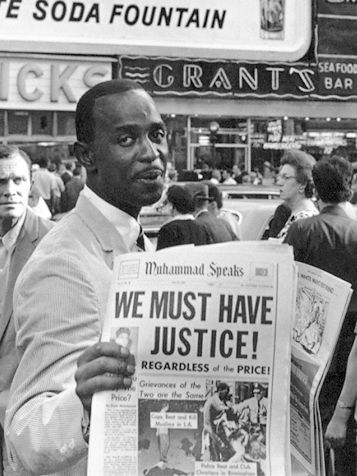
“I think that Elijah Muhammad gave us a blueprint for really helping to solve problems. He was a problem solver. He talked about the importance of science and mathematics, things of this nature, nation-builders skill. I mean, we really need to embrace that, that philosophy of self-determination and become problem solvers to particular issues that affect us most.”
Dr. Jeffries noted how the Honorable Elijah Muhammad swam against the proverbial tide. His introduction of Islam to Black America was difficult.
“Given my research, I really think (the opposition he faced in the Black community) has everything to do with the religion aspect of his program,” she opined. “In addition to his Black self-determination ideology and philosophy, Islam is attached to that. It also takes away from the Judeo-Christian perspective that many Black people still embrace. I think that’s part of it. I also think that he takes away from the master narrative or the traditional narrative of civil rights and assimilation and those kinds of ideas because Elijah Muhammad was not pushing assimilation.”
Student Minister Abdul Hakeem Muhammad, the European Regional Representative of The Honorable Minister Louis Farrakhan and the Nation Of Islam, discussed the Honorable Elijah Muhammad and his global dimensions. Abdul Hakeem Muhammad is based in London, but the Nation’s regions now include the Caribbean and Central and South America.
Min. Hakeem Muhammad told The Final Call the entire Muslim Program, found on the inside back page of this newspaper, is applicable for Black people wherever they are found, including Africa. Currently, he is focused on the aspect of separation.
“We want to join forces with our brothers and sisters in the Caribbean and also Africa and the Middle East and the Far East,” he said. “We must build links outside and around the Caucasian people with whom we’ve lived for the last 400 plus years. We’ve tried to acquire food, clothing, shelter from these same people, it just hasn’t worked. So, we should now make provisions to try to link with our people outside of the UK and Europe.”
“For me, the global aspects of the work of the Honorable Elijah Muhammad is the unification of the original people and establishing the reality of God, the reality of the time in which we’re living,” Student Minister Hakeem Muhammad said.
Dr. Abul Petri concluded his interview with The Final Call, saying academics must include the Honorable Elijah Muhammad in their studies. “To that end, I have written a book entitled ‘Introduction to Elijah Muhammad Studies.’ In the book, we introduce a field of study called Elijahmatology, a study of Elijah Muhammad in academia. We at San Francisco State now offer the first and only course in the world dedicated to his life, thoughts, and teaching.”
“If you’re studying astronomy, astrobiology, mathematics, geography, or whatever area you’re studying, the Honorable Elijah Muhammad gave a template or teaching around that particular discipline or field of study. And in reality, his teachings are fueling the major research that is taking place at these universities,” Dr. Petri deduced.
The origin of the Honorable Elijah Muhammad’s monumental accomplishments given his perceived limitations was discussed by Dr. Akbar.
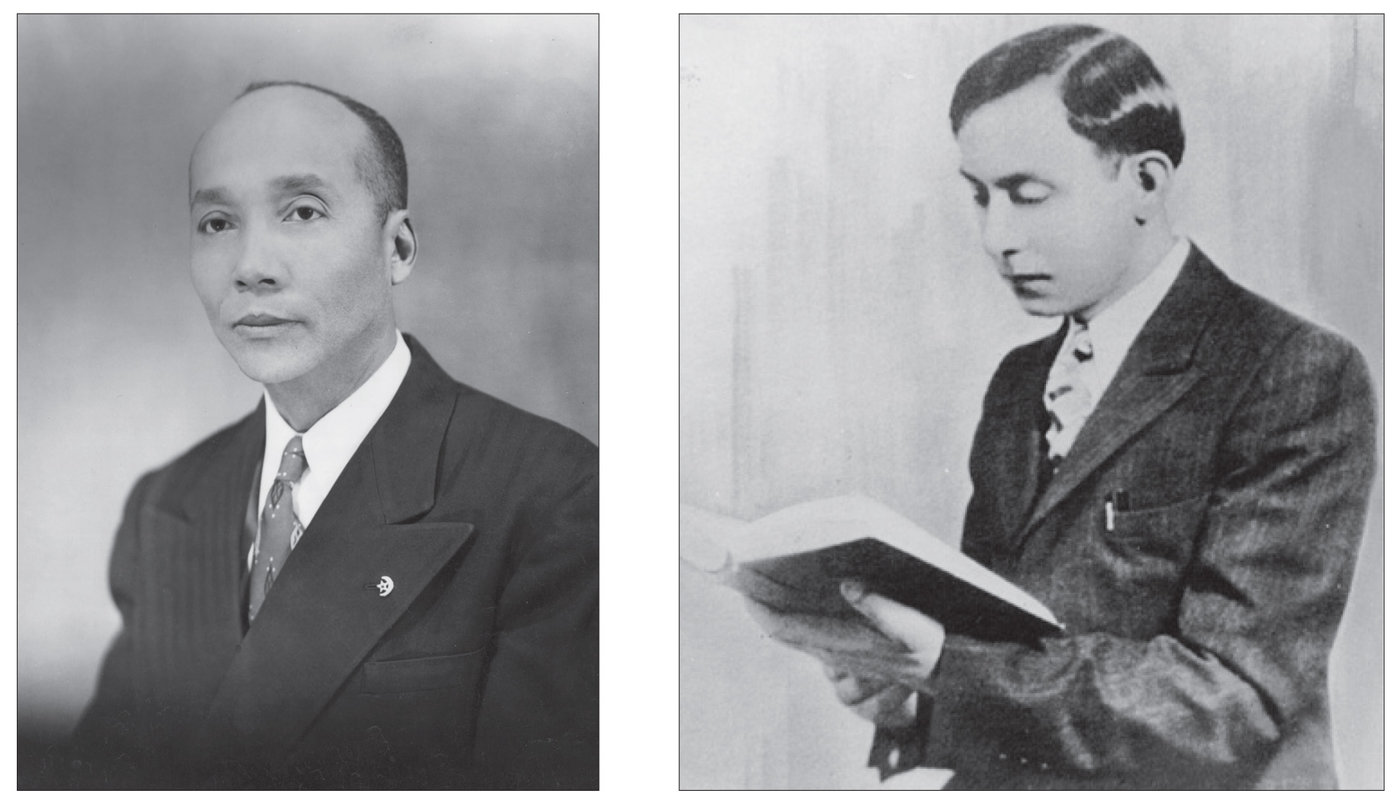
Elijah Muhammad, he said, met a man in 1931, Master Fard Muhammad, the founder of the Nation of Islam, who he declared was God in Person and the fulfiller of the prophesies of the Messiah of the Christians and the Mahdi (Self-Guided One) of the Islamic World. He studied under Master Fard Muhammad for three-plus years. “But I don’t believe the Honorable Elijah Muhammad was an empty vessel.
I think there was a spiritual preparation in his own makeup, having come out of the rural south, and in many ways, he kind of had encapsulated in his DNA, if you will, kind of like a capsule of our entire history. The Honorable Elijah Muhammad was no accident,” Dr. Akbar said.
His great teacher poured Supreme Wisdom into him and that wisdom has been like a lifegiving sun or abundant rain falling on dead earth that restored life.
This especially is seen in the legendary work of the Honorable Elijah Muhammad in the field of prison reform, rehabilitation, and addiction, abundantly seen through his student Malcolm X who was both an addict and a prison inmate before being touched by the Messenger.
Gary Felber’s book “Those Who Know Don’t Say: The Nation of Islam, the Black Freedom Movement, and the Carceral State,” argued, “The NOI always considered prisons an essential arena for political struggle, as opposed to a stepping stone leading to it. The NOI not only looked to prisons for recruits but long regarded it as a site of political activity.”
“Indeed, the Nation challenged prison from within and without. Acts of resistance included hunger strikes, sit-ins, disruptions of solitary confinement, and, most consequentially, litigation against prison officials. Between 1961 and 1978, federal courts ruled on no fewer than sixty-six suits filed by Muslim prisoners.”
“Of all of these cases, arguably the most important was Cooper v. Pate, filed by incarcerated Muslim Thomas Cooper in Illinois and culminating in the Supreme Court’s 1964 ruling that prisoners did, in fact, have constitutional rights. By overturning the 1871 ruling Ruffin v. Commonwealth, which classified incarcerated individuals as ‘slaves of the States’ without rights, the Cooper decision represented a landmark decision not only for incarcerated members of the Nation but for all prisoners in the United States.”
The Prison Ministry of the Nation of Islam began with the incarceration of the Honorable Elijah Muhammad. On May 9, 1942, he was arrested for failure to register for the draft during World War II and charged with eight counts of sedition. He served four years, from 1942 to 1946, at the Federal Correctional Institution in Milan, Mich.
Today thousands in the belly of the beast are the beneficiaries of the Nation of Islam’s commitment to restore, resurrect and reform Black people into their true selves, free of the physical, spiritual, emotional and mental slavery imposed by White America and her institutions.












